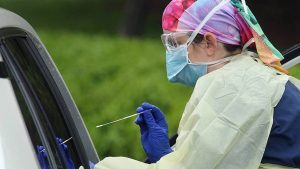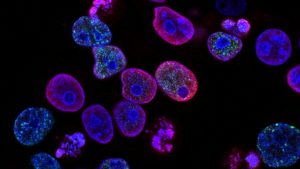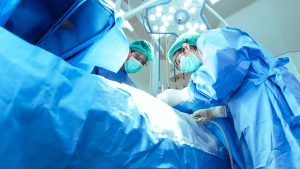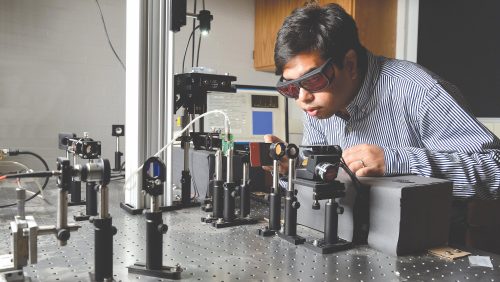The Micro and Nanoscale Engineering group conducts fundamental research on a wide range of scientific and technological problems related to fabrication, characterization, design and modeling of small-scale materials, devices and their integration into engineered systems.
The major areas of the research group include mechanical behavior of nanocrystalline thin films, 3D characterization, nanomaterials, multiscale modeling, molecular dynamics, Micro Electro Mechanical System (MEMS), micro-cooling, molecular motors, nano-biosensors, microfluidics, magnetic droplet manipulation and lab-on-a-chip systems.
Specialties
- Micro and Nano Structured Materials and Devices
- Microfluidic Systems
- Micro Electro Mechanical System (MEMS)
- Single Cell Optical Imaging and Spectroscopy
- Cell and Molecular Biomechanics
Faculty
-
Email:ibarman@jhu.eduPhone:(410) 516-0656

-
Email:jelawady@jhu.eduPhone:(410) 516-6683

-
 Email:hemker@jhu.eduPhone:(410) 516-4489
Email:hemker@jhu.eduPhone:(410) 516-4489
-
 Email:schur@jhu.eduPhone:(410) 516-6653
Email:schur@jhu.eduPhone:(410) 516-6653
-
 Email:rhurley6@jhu.eduPhone:(410) 516-5569
Email:rhurley6@jhu.eduPhone:(410) 516-5569
-
 Email:rui.ni@jhu.eduPhone:(410) 516-0939
Email:rui.ni@jhu.eduPhone:(410) 516-0939
-
Kaliat (K.T.) Ramesh
Alonzo G. Decker Jr. Professor of Science and Engineering Email:ramesh@jhu.eduPhone:(410) 516-7735
Email:ramesh@jhu.eduPhone:(410) 516-7735
-
 Email:ssun@jhu.eduPhone:(410) 516-4003
Email:ssun@jhu.eduPhone:(410) 516-4003
-
 Email:thwang@jhu.eduPhone:(410) 516-7086
Email:thwang@jhu.eduPhone:(410) 516-7086
Affiliated Groups, Centers, and Institutes
- Institute for NanoBioTechnology
- The Barman Laboratory
- Hemker Lab
- IHur Lab on Micro-Fluidic Biophysics
- Hurley Research Group
- The Kang Group for Bioinspired Materials and Mechanical Systems
- Fluid Transport Lab (Ni)
- The Ramesh Laboratory
- Cell Mechanics Group (Sun)
- BioMEMS and Single Molecule Dynamics Lab (Wang)
Advancing Nanotechnology
Engineering at the nanoscale

Hopkins Engineers Develop Rapid COVID-19 Testing Platform - When completed, the system designed by Ishan Barman and team will test for the SARS-CoV-2 virus in as few as 10 minutes and can be performed in healthcare facilities or the workplace

New HIV Self-Testing Technology - Making viral load testing routine for people living with HIV/AIDS (PLWHA) will help them better manage their disease and potential for transmission. To address this, Jeff Wang and a multi-disciplinary team of researchers were awarded $3 million by the National Institutes of Health to develop a diagnostic device for self-testing HIV viral load.

Stopping Cancer In Its Tracks - “ECM remodeling is important to establish the connection between cancer cells and the surrounding healthy cells. Essentially, we need to cut that connection to prevent the spread of cancer. The hope is that, eventually, we can implement this knowledge clinically to stall this ECM remodeling and stop metastasis,” says Wei-Hung Jung, a PhD candidate in Yun Chen’s lab.

Simplifying A Complicated Surgical Procedure - Microvascular anastomosis, a highly specialized surgical technique of hand-sewing together blood vessels during operations like organ transplant and plastic surgery, requires years of training and practice, and takes hours to complete in the operating room. Sung Hoon Kang, working with a team of vascular and microvascular plastic surgeons, used 3D printing to create Vaso-Lock, which holds together free vascular ends instead of requiring stitches.



